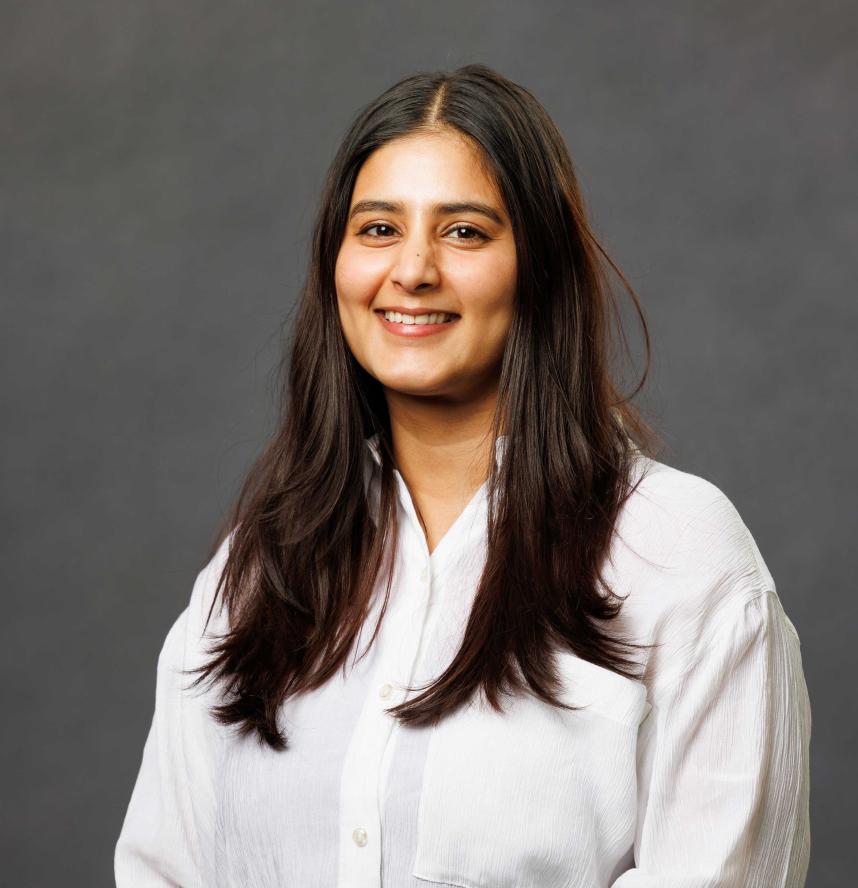Driven by Discovery

By: Maisie O'Brien
Mridushi Daga, MS in Biology ’20, looks forward to seeing the research she has spent countless hours pouring over translated into medical advancements in her lifetime. As a PhD candidate in biomedical sciences at UMass Chan Medical School in Worcester, she is researching autoimmune diseases, which occur when the body's immune system attacks healthy cells.
Daga is currently working in a translational science lab that frequently collaborates with industry. “It’s so rewarding to see something you worked on get picked up and make its way into pharma,” she says. “There are so many autoimmune diseases, like Lupus, that have no cure and present chronic challenges that people just have to live with. My overarching motivation is to help people live healthier, fuller lives.”
Daga graduated from the Tufts Open Choice Masters in Biology program, which prepares students to understand life at the molecular, cellular, organismal, population, and community levels. Graduates of the program enter an array of fields, including biotechnology, pharmacology, government, and nonprofits, and many go on to join PhD programs.
“The best part of the Tufts OC-MS in biology is that you can customize your studies to fit your interests,” Daga says. “This flexibility really worked for me because I came to Tufts with a background in things I wanted to build upon and new things I wanted to explore.”
At Tufts, Daga worked as a researcher in The Levin Lab, led by Professor of Biology Michael Levin. The lab works at the intersection of developmental biology, computer science, and cognitive science. “It was completely different from my previous work and made me realize that I could potentially enjoy research in any field,” she says. Her project involved determining whether algae change their behavior based on external stimuli.
“Mike was really supportive even from our first meeting,” she recalls. “His ideas are really unique and inspiring, and working with him helped solidify my decision to pursue a PhD.” Daga also loved her immunology courses, valuing the opportunity to not only read scientific papers, but to critique the data and findings they present.
Daga graduated in May of 2020 and began working as a research assistant at the Rockefeller University in New York City prior to beginning her PhD. It was a time of loss and grief as New York City was experiencing waves of Covid-19 infection and the world was grappling to understand this deadly new virus. Daga’s lab was involved in multiple clinical trials examining patient data before and after infection to see how the virus was harming people’s bodies.
“It was a really stressful, scary time in New York City,” she reflects. “Getting on the subway in the morning with other healthcare and essential workers, there was a sense of historical importance to what we were doing.”
Daga finds her current work no less meaningful. “I’ve always wanted to work in autoimmunity,” she says. “There’s a lot to learn and discover right now. We’re seeing rising incidences of autoimmune disease and the reasons for this aren’t yet understood. The line between the immune system protecting your body and going into overdrive and attacking it is very fine. It’s a highly regulated system and it can be easy to disrupt that tight regulation.”
Daga is proud of her academic journey and credits a high school biology teacher for instilling in her a love of science. “She made it fun,” Daga reflects. In undergrad she studied biotechnology at Manipal Academy of Higher Education in India and completed an internship in plant biology at the Indian Institute of Science prior to beginning her master’s degree at Tufts.
When she isn’t busy with classes or research, Daga enjoys her lifelong passion of reading. “I’m a curious person,” she says. “I love to learn and figure out how things work.”